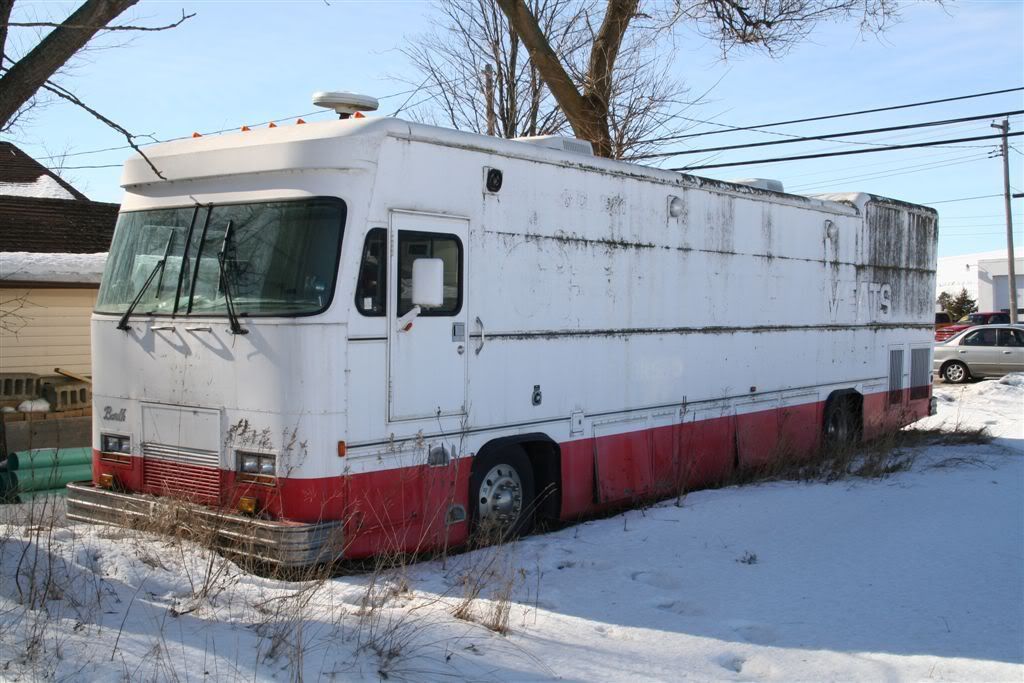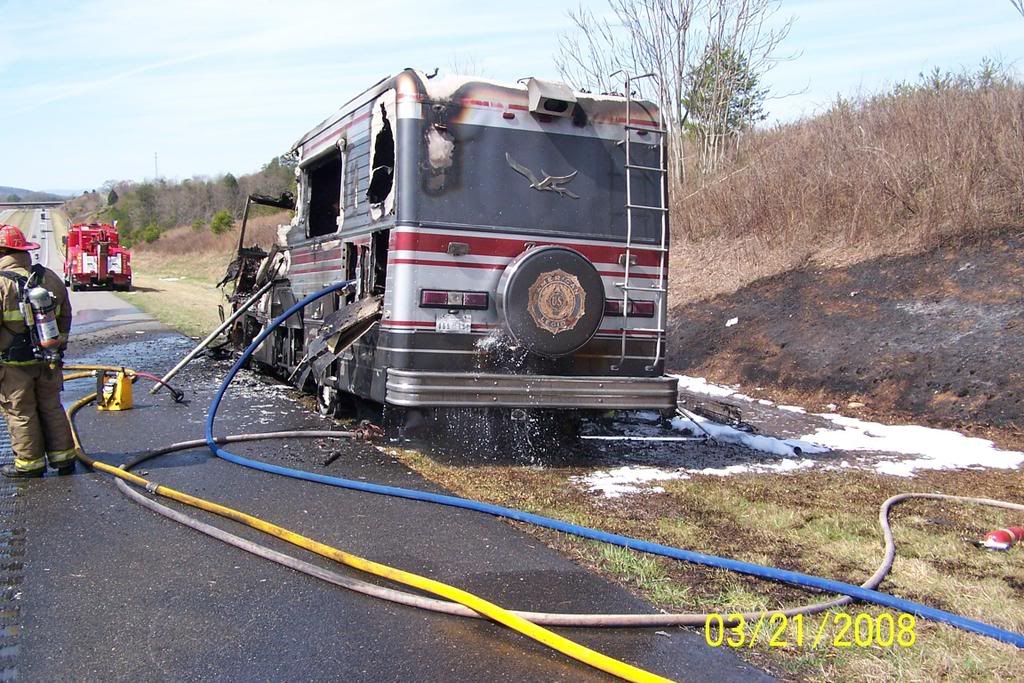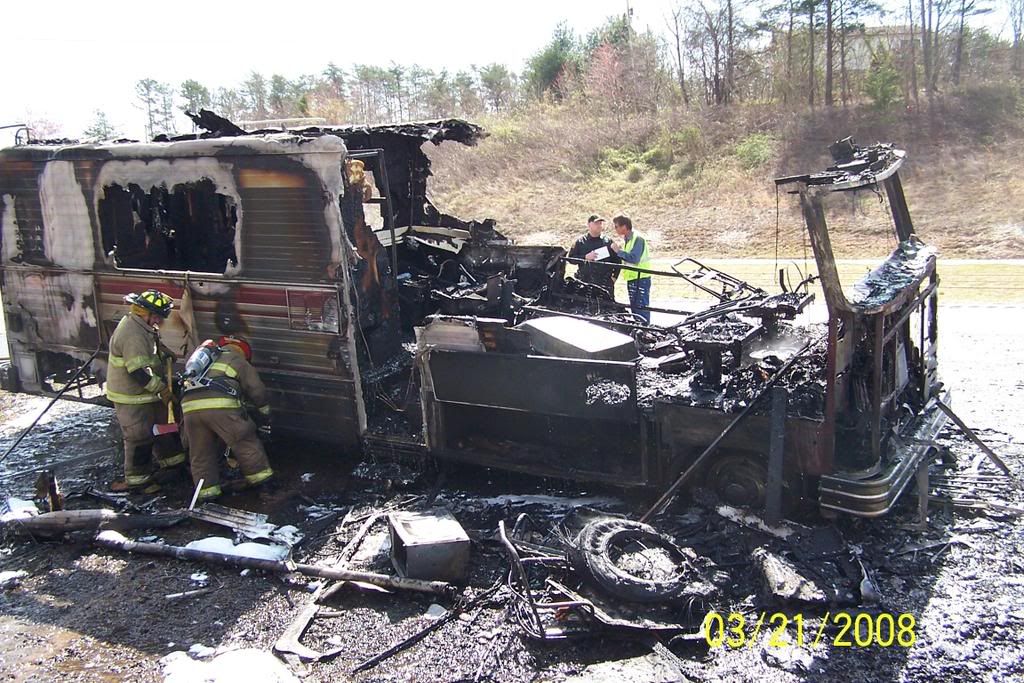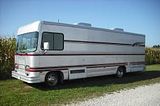Go to...  | Start A New Topic  | Search  | Notify  | Tools  | Reply To This Topic  |  |
FKA: noble97monarch 3/12 3/12 |
I've heard a lot of theories here on Barthmobile concerning the danger of low mileage or low use engines. I'm not convinced and still value low mileage over high mileage. So i started this discussion to air out the truth or at least outline the facts from opinions when it comes to low mileage on RVs. Like many of you, I've been around "motors" my whole life and I've heard just about everything stated as God's truth when it comes to mechanical issues. The people with the strongest opinions often also know the ONLY car to buy, the ONLY tires worth a darn, etc. Therefore I'm always suspicious of the logic or science behind the opinion. So here's what I think are facts on low use engines: LOW MILE PROS: * Engine parts wear over time, therefore lower wear is better * Most engine failures are due to excessive component wear or heat stress over time * Most engines are designed with wear items that have a limited life, such as bearings and rings * I've never seen an expiration date on an engine, but I've always seen maintenance schedules outlining wear items * While time wears things out, like hoses and batteries, engines are designed to sit most of their life and the idleness doesn't create harm * Most buyers and buyer guides give large increases for low miles * The major components like heads, crank, pistons, etc. don't fatigue sitting still LOW MILE CONS: * If left sitting with old oil - Old oil has acid in it that can slowly eat at metal components lie in it (this would also be true in a high miler of course) * Moisture could accumulate due to lack of use (heat) to boil it off and cause corrosion or lubrication damage So there's my feeble list. I currently lean definitely towards low miles being far better if properly maintained and stored. I'm looking forward to others adding their logic or experiences.  Formerly: 1997 Barth Monarch Now: 2000 BlueBird Wanderlodge 43' LXi Millennium Edition DD Series 60 500HP 3 stage Jake, Overbuilt bike lift with R1200GS BMW, followed by 2011 Jeep Wrangler Unlimited, “I haven’t been everywhere, but it’s on my list.” | ||
|
"Host" of Barthmobile.com 1/19 1/19 |
Me too... but herein lie the problem. Most of these have not been setup for a sitdown.  When I have to get older diesels running with lower mileage that have not been properly maintained I seem to run into problems with seals or water pumps leaking. The bigger issue has usually been wheel seals leaking. The worst case was an engine that sat, it turned over by hand, but when running it locked up the injector. When I went to start it up one of the injectors locked up causing the injector pushtube to bend. I thought... "No biggie, I'll just replaced the defective injector." But, because the bent pushtube forced the injector deeper into the brass cap it caused the injector cup to stress. After a few days it developed a fuel leak into the coolant system. This caused me to yank a head. Seals, pumps etc... can be changed and I would have no problems with an older engine for myself, but then again my labor is free. I would only hesitate at the DD 8.2l engines no matter how many miles are on it. Sorry 8.2l Detroit Guys.
| |||||||||||||||
| ||||||||||||||||
Corey, I am in your camp! I also have been around engines all of my life from stationary engines to million mile trucks, and in the low mileage camp. On many of the auto forums of classic cars that I am a member, if someone finds a low mileage example they are sternly cautioned, yet many will buy high mileage vehicles only to complain later about the extreme cost to correct the mechanical issues. Yes, rubber and plastic parts will need to be replaced on low mileage examples BUT, it still needs to be replaced on high mileage examples if it hasn't been done. Operation or lack of operation doesn't increase the lifetime of these parts Certainly, there are residues that are in fuel that will leave a deposit if sitting but in the case of gasoline, once it evaporates, nothing more happens! All rotating and sliding parts have a life time and it it not measured in years but in the amount of time it spends in operation. As long as the parts haven't been subjected to corrosive elements they will last for years and years just sitting. The gear train will be very well protected as most gear oils have a heavy film that will stay on the mechanical parts and give protection for long periods of time. I have found low hour Detroit diesels (6-71, 8V-71, 8V-92) engines that have sat for years with very low hours, flushed the fuel system and they fired right up, lasted for many years afterward without issues. During our farming operation we would leave equipment engines sit for 6-9 months of the year and never have an issue. NOW, what I can say is the worst thing one can do is to run an engine for a brief period of time periodically. It is thought that this will help prolong the life time of the engine and in fact will shorten the lifetime dramatically!! It is amazing how long the engine much be run at full operating temperature to evaporate the moisture build up that occurs during brief operation, 20 minutes around the block on on the highway will not do it! This is particularly bad in high humidity area or in extremely cold areas during winter! Carburetor engines will be full choked and there will be fuel that will wash down the cylinder walls during starting and will collect in the oil pan if done often enough! Many years ago I had an engine re-build shop and we would dyno engines after re-build. The moisture build up after 3-5 dyno pulls was amazing, in some areas under the valve covers moisture would get trapped and could be collected with a spoon. If I found a low mileage vehicle that the owner had run repeatedly and briefly over the storage time, I wouldn't touch it! Any enclosed area that has a rapid increase followed by decrease in temperature will cause condensation. Engines that are operated for short periods of time will not develop high enough internal temperatures to evaporate this moisture. It takes miles and miles of driving to get the oil temperature above 100 degree c. Gear cases are similar! Bottom line for me is, I would rather replace rubber and plastic then bearings etc. When I bought my Breakaway, 70K miles, 12 years, the first thing I did was replace as many hoses and other related rubber and plastic aged parts. Most all of my issues have been due to previous crappy maintenance, not necessarily the owners fault but the mechanic's incompetence! Ed 94 30' Breakaway #3864 30-BS-6B side entry New Cummins 5.9L, 375+ HP Allison 6 speed Spartan chassis K9DVC Tankless water heater | ||||
|
FKA: noble97monarch 3/12 3/12 |
It's good to see a few heavy hitters in my camp, although I do hope there are some "high miler" defenders that weigh in too. When I bought my Monarch it had just 26000 miles and was 10+ years old. It was stored in a warehouse and still looked new and I have had no problems with anything major except the generator. What is interesting about the generator is the stator went at only 85 hours! Did it fail from lack of use? My guess is that it was going to fail at 10+ years no matter what the hours because of a design flaw in the stator. The difference is someone with 2000 hrs at ten years would think "boy, I got good use from that generator"; someone with 85 hours thinks "what a piece of crap"! The above scenario lends itself to the "lack of use - failure camp" but it is my belief that a time bomb design flaw is an exception to the rule.  Formerly: 1997 Barth Monarch Now: 2000 BlueBird Wanderlodge 43' LXi Millennium Edition DD Series 60 500HP 3 stage Jake, Overbuilt bike lift with R1200GS BMW, followed by 2011 Jeep Wrangler Unlimited, “I haven’t been everywhere, but it’s on my list.” | |||
|
"Host" of Barthmobile.com 1/19 1/19 |
One of the things we caution people about that buy these lower mileage engines is that they run them and think... It only has 28k miles on it so it should be ok. They develop a leak and being oblivious they keep driving it. We've read here many instances of the maiden trip turning into a blown engine because of these issues. I would much rather send a person out on a maiden trip with a higher mileage engine than one that sat. I think: It's the false sense of security that seems to play into the demise of some of these coaches because of this. Taking a coach to the next exit with any type of leak is just too damn risky... and it happens more often than I care to admit. Dave Bowers suffered this same fate on his gasser and Lorelei on their Diesel Pusher. I've had countless people contact me with this same issue several times since taking over for Dave. We had one member, that bought a low mileage unit, burn his coach up after taking it home for the first time. It broke down with a defective fuel pump that was caused by crap in the tank and somehow after replacing the pump it caught fire.  
| |||||||||||||||
| ||||||||||||||||
| First Month Member |
I think Ed Chevalier has a pretty good take on that one.
I do not like rubber in the engine compartment. Too much heat and there could be bad consequences in the event of a failure. Heat and age combine to make hoses get hard and crack or they shrink and the clamps no longer seal well, no matter what type clamp is used. I have observed leaking worm drive clamps (even constant torque ones), flat spring clamps, wire spring clamps, Corbin clamps, FI clamps and the OEM tower style clamps. As several have mentioned, a new purchase should have all the soft parts replaced unless there is documented history. Their problems are age-related, rather than mileage-related. My own take on the mileage thing is that some folks are applying car rules to motor homes. In the small town where I grew up, it was an accepted truth that a local low mileage car was not a good used car purchase because the low miles were mostly all around town, and involved many cold startups and short drives. A car owned by traveling people, that involved longer trips, with fewer cold startups and short trips with insufficient warmups had a better chance of being a good car. One of our dealers didn't even try to sell short trip low mileage cars in town because their history was known. They went straight to auction. With motor homes, the choice is not so clear-cut. We can assume that there is little commuting use. The question is: Did the low mileage RV take a really long trip and then sit for a year, or did it go out every weekend? A low mileage coach that took a medium length trip every weekend or once a month would be a better choice than one that did all its miles during one summer vacation trip each year. I know of motor homes that are moved once a week for street sweeping, but never driven the desired 20 miles or so that manufacturers recommend. Just fire it up, drive it a block, then do it again later in the day to move it back. This is the worst example of low-mileage driving. So.................my take on the whole thing is, "It Depends". . 84 30T PeeThirty-Something, 502 powered | |||
|
 5/10 5/10 |
That picture is sooo sad, omg. High mileage is not always bad, we got our 1960 GM bus with a 6 71 Detroit (rebuilt) at one million miles and she still purrs like a kitten. Maintenance is not cheap though. Getting her ready for a new home and a trip across the ocean end of month. Diesels are born to run (not idle). 1995 Bluebird Wanderlodge Widebody S60 Detroit 42' Former owner 1989 Barth Regal 25' | |||
|
FKA: noble97monarch 3/12 3/12 |
That's another of those sayings that I don't really agree with. Why can't a diesel idle? I've seen hundreds of diesels idling through the night at truck stops, why is that bad? I would totally agree with the statement during break-in, when you want the engine exercised so you don't get pre-mature seating of the rings, but after-wards....why not?  Formerly: 1997 Barth Monarch Now: 2000 BlueBird Wanderlodge 43' LXi Millennium Edition DD Series 60 500HP 3 stage Jake, Overbuilt bike lift with R1200GS BMW, followed by 2011 Jeep Wrangler Unlimited, “I haven’t been everywhere, but it’s on my list.” | |||
|
 5/10 5/10 |
Idling a diesel gums it up. Many locations do not allow idling trucks no more (Kalifornia gives you a ticket after 5 min). You put a lot of wear and tear on it without going anywhere. The hours count too, not just the miles. Installing a genset on our semi in near future. If you idle speed up the rpms. 1995 Bluebird Wanderlodge Widebody S60 Detroit 42' Former owner 1989 Barth Regal 25' | |||
|
 3/11 3/11 |
From the standpoint of a car manufacturer I can say that we always tear down an engine before we install it in a vehicle. First of all is the possibility of stuck rings, weakened valve spings (remember that 1/2 will be compressed no matter where the cam is stopped) the valve seals will be hardened and most gaskets will have dried out. By pulling the engine and going through it we save the engine and take advantage of the little wear that has been accumulated. Most people cringe at the thought of disaasembling what is considered a "nearly new" engine. Spend the bucks and save the thousands later. 1993 32' Regency Wide Body, 4 speed Allison Trans, Front Entry door, Diamond Plate aluminum roof & 1981 Euro 22' w Chevy 350 engine and TH 400 tranny | |||
|
Captain Doom |
When I was in the oil bidness, a 20 year old car with 8K miles was called an "Aunt Minnie". Dear sweet Aunt Minnie drove it 3 miles to church twice a week and 10 miles a week to the grocery store. She changed the oil religiously - which worked out to about every three years. The inside of her engine looked like a coal mine. In addition, greases will separate allowing corrosion, and oil run down in the engine will allow the same things (to which add sludge and varnish). The liquid detergent-dispersants in contemporary motor oils are, however, more resistant to losing corrosion protection over the metallic ash detergents. One needs to keep in mind also that 100K on a '50s gaso engine was hard to do. Now, 250K is a reasonable expectation, as is 500K+ on a light-duty diesel. I'm in agreement with Bill N Y - I favor the high mileage coaches, not just because engines actually accumulate very little wear when being run warmed up, but a coach being used will tip the owner off to things going wrong, and that owner should be more likely to attend to things. As for idling, no engine should be allowed to idle cold. Warm idling is somewhat better, but trucks in local cartage have an oil change interval 1/3 that of OTR trucks, because they idle a lot. Anyway IMHO, nothing good happens to machinery sitting idle for extended periods. Rusty '94 28' Breakaway: MilSpec AMG 6.5L TD 230HP Nelson and Chester, not-spoiled Golden Retrievers Sometimes I think we're alone in the universe, and sometimes I think we're not. In either case the idea is quite staggering. - Arthur C. Clarke It was a woman who drove me to drink, and I've been searching thirty years to find her and thank her - W. C. Fields | |||
|
The reason idling diesels is a no no is that they are hard to keep warm at idle. '92 Barth Breakaway - 30' 5.9 Cummins (6B) 300+ HP 2000 Allison Front entrance | ||||
|
 |
What is it about diesel engines that make them idle cooler? I have a diesel VW car and unless the engine is under load it will take about 35 to 40 minutes for the water temp to come up 'in the green' when the outside temp is around 40F. It only takes about 3 miles/ 7-8 minutes of driving. | |||
|
I had always understood that the reason a diesel engine idled cooler was that due to the increased compression ratio, the engine used 8 times as much air as a gas engine. The volume of air kept the engine inherently cooler. | ||||
|
Captain Doom |
The volume of air is a function of displacement, not compression ratio. Turbochargers don't have much boost at idle, so don't add to the volume. Rusty '94 28' Breakaway: MilSpec AMG 6.5L TD 230HP Nelson and Chester, not-spoiled Golden Retrievers Sometimes I think we're alone in the universe, and sometimes I think we're not. In either case the idea is quite staggering. - Arthur C. Clarke It was a woman who drove me to drink, and I've been searching thirty years to find her and thank her - W. C. Fields | |||
|
| Powered by Social Strata | Page 1 2 3 |
| Please Wait. Your request is being processed... |
|
This website is dedicated to the Barth Custom Coach, their owners and those who admire this American made, quality crafted, motor coach.
We are committed to the history, preservation and restoration of the Barth Custom Coach.
We are committed to the history, preservation and restoration of the Barth Custom Coach.



